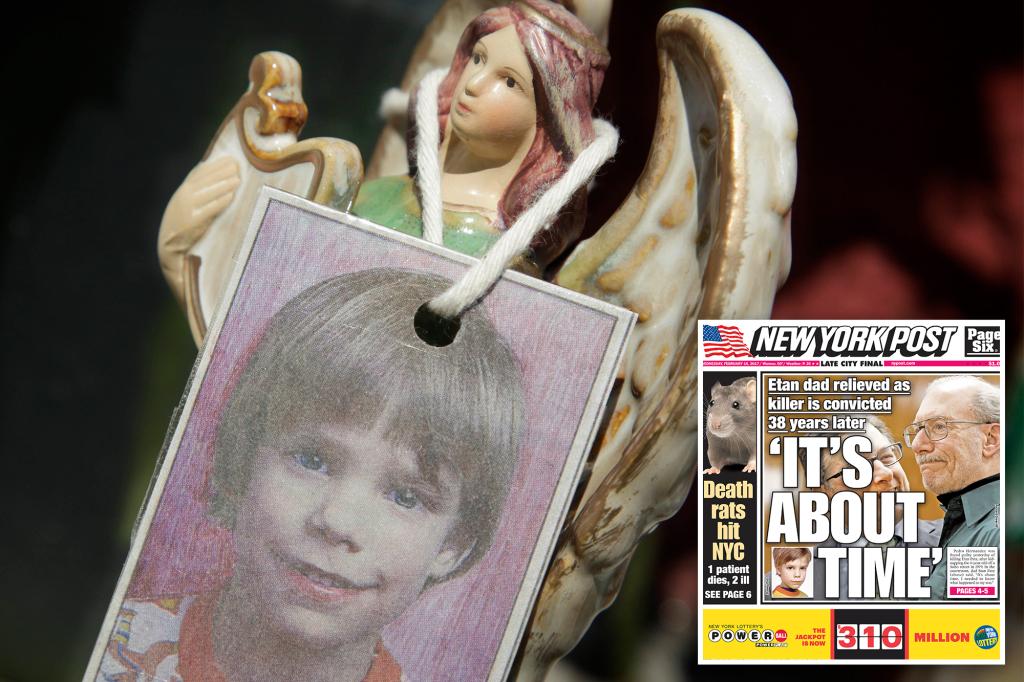Big Apple prosecutors will petition the Supreme Court to restore a murder conviction for the former bodega clerk found guilty in the 1979 disappearance of 6-year-old Etan Patz — after a federal appeals court shockingly overturned the verdict in July.
The Manhattan District Attorney’s office asked the 2nd US Circuit Court of Appeals to hold off on enforcing its decision to overturn the verdict in the case of Pedro Hernandez, according to a court filing Sunday obtained by The Post.
When overturning his conviction, a three-judge 2nd Circuit panel ordered that Hernandez — who was serving a sentence of 25 years to life in state prison — be freed unless he’s put on trial for a third time “within a reasonable period.”
The ruling, however, presents “substantial legal questions,” prosecutor Stephen Kress argued in the filing.
The DA’s office is now “committed to seek Supreme Court review.”
Kress demanded that the appeals court wait until a Supreme Court filing deadline on Oct. 20 before sending the case back to a lower-level federal judge for retrial.
The retrial could be put on hold indefinitely if the high court agrees to weigh in on the case.
Hernandez, now 64, had argued in his appeal that jury instructions during his high-profile Manhattan trial were improper and prejudiced the outcome.
“We conclude that the state trial court contradicted clearly established federal law and that this error was not harmless,” the appeals panel wrote in its ruling.
The former convenience store clerk became a suspect over 30 years after the first-grader vanished.
Etan’s disappearance had baffled authorities and fascinated the public for years after the boy vanished from a SoHo street on May 25, 1979 — the very first time his parents allowed him to walk alone to his bus stop.
He became one of the first missing kids ever pictured on milk cartons, and the anniversary of his disappearance was designated National Missing Children’s Day.
Hernandez didn’t become a suspect until 2012, when cops received a tip that he’d apparently confessed during a prayer group to killing a child in New York.
During a videotaped interrogation, Hernandez admitted to strangling Etan until he went limp.
“Something just took over me,” he said in one of the recorded confessions, adding that he’d wanted to tell someone, “but I didn’t know how to do it. I felt so sorry.”
The child’s body was never recovered, and no physical evidence ever tied Hernandez to the crime.
His first trial ended in 2015 with a hung jury.
After a retrial in 2017, he was found guilty of kidnapping and murder and sentenced to the maximum of 25 years to life in prison.
But during deliberations, jurors sent a note to the judge asking whether they should disregard all of Hernandez’s videotaped confessions if they found that an earlier admission he made before he’d been read his Miranda rights was “not voluntary.”
Manhattan Supreme Court Justice Maxwell Wiley responded to the jury that “without further explanation, that ‘the answer is, no,’” the appeals court ruling said.
The jury returned to its deliberations and convicted Hernandez seven days later.
Jurors should have at the very least been told to make up their own minds about the later confessions, Hernandez’s lawyer argued.
Instead, the judge’s short response “unquestionably impacted the verdict,” the federal judges agreed Monday.
Hernandez’s legal team has argued that his confessions were the result of delusions suffered as part of a mental illness.
With Post wires.
Read the full article here


